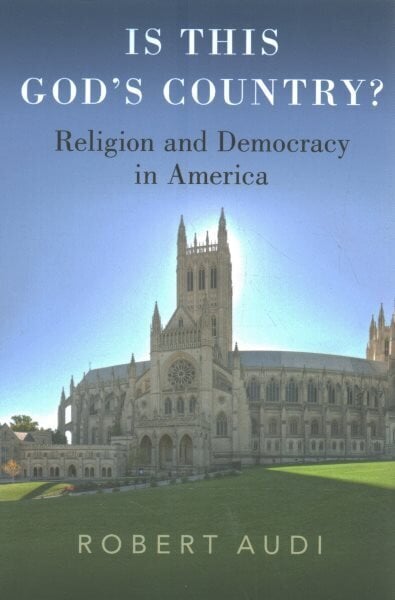"Our founding documents are one source of this idea-they certainly reinforce the idea that God has a special mission for America. "America the Beautiful," as the song calls it, is often conceived as a great representative of democracy, a citadel on a divinely blessed hill. The Declaration of Independence says we are "endowed by our Creator" with "unalienable rights to life, liberty, and the pursuit of happiness." Abraham Lincoln's Thanksgiving Proclamation of 1864 announces, "It has pleased Almighty God to prolong our national life another year... and vouchsafing to us in His mercy many and signal victories over the enemy, who is of our own household." In line with the divine endowment view, our currency displays "In God We Trust," and the Pledge of Allegiance calls us "one nation, under God." Many Americans also have a sense of America as having a mission, a kind of evangelism for democracy that is reminiscent of the Biblical commandment to make disciples of all nations. Our "founders"-authors of the Declaration and the Constitution-were mainly theists, and they considered the Bible the paradigm of divinely inspired writing and America the exemplar of an enduring union of Biblical ideals and democratic practices"--
Can religion coexist in harmony with the American ideal of separation of church and state? Philosopher Robert Audi here explores this perennial and topical question. The notion of a religion is complex and elastic; the notion of democracy is complex and contested. Audi explores both notions in the context of American founding documents, American ideals of religious liberty and social justice, and contemporary American social problems in public education, business, and healthcare--all of which are beset by the culture wars--from perceived hostility to religion in schools, to vaccine resistance, to refusals to provide religiously objectionable services, to abortion. Is This God's Country? reflects Audi's decades of work on religion and politics, ethics, and philosophy of religion. He accessibly explains why America separates church and state, how this can benefit both religious and secular citizens, why there is nevertheless controversy about what this means, and how opposed religious and secular people can peaceably resolve their differences. With the generous use of examples, Audi proposes standards for discussing and resolving those differences in education, business, and medical care. His final chapter addresses the question whether, within those standards, America can be Christian--or religious at all--in a way that integrates religious liberty with democratic law-making and expands the common ground we need to overcome the cultural fragmentation that besets America.
Is This God's Country? presents an exploration by noted philosopher Robert Audi on the tensions between church and state in the democratic United States. He investigates how and why America separates church and state, and whether this separation benefits both religious and secular citizens. Audi then proposes standards for discussing and resolving church-state issues in education, business, and medicine, using a multitude of examples. He addresses the question whether America can be Christian--or religious at all--in a way that still integrates religious liberty with democratic law-making, and expands the common ground we would need in order to overcome the cultural fragmentation that besets America.
